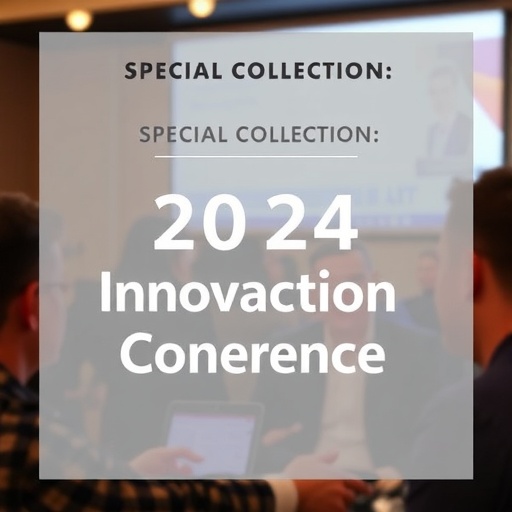In the rapidly evolving landscape of biomedical engineering, the 2024 International Conference on Aging, Innovation and Rehabilitation has emerged as a pivotal forum to discuss transformative advancements addressing the intricate challenges of aging populations. The special collection published in BioMedical Engineering OnLine captures the essence of this significant global event, showcasing cutting-edge research and innovations that promise to redefine rehabilitation and geriatric care in the near future.
Aging, a universal phenomenon, presents complex physiological, neurological, and biomechanical changes that significantly impact quality of life. This collection delves into multidisciplinary approaches combining engineering ingenuity with clinical insights, aiming to develop sophisticated diagnostic, monitoring, and therapeutic tools. The cross-pollination of ideas from experts in robotics, sensor technologies, data analytics, and bioinformatics is palpable throughout this compendium, illuminating the direction biomedical engineering is taking to meet the needs of an aging society.
One of the core themes emphasized in the collection is the integration of wearable technologies and smart devices designed to continuously monitor vital health parameters while facilitating proactive interventions. These technologies leverage advancements in miniaturized sensors, wireless communication, and real-time data processing. Such systems provide unprecedented opportunities for personalized rehabilitation protocols, which dynamically adjust to patients’ changing conditions without requiring constant clinical supervision.
In-depth explorations into robotic-assisted rehabilitation further underpin this collection’s relevance. Innovative robotic exoskeletons and assistive devices have been refined to enhance mobility and functional independence among older adults suffering from stroke, Parkinson’s disease, or musculoskeletal disorders. The research highlights how adaptable control algorithms and human–machine interfaces contribute to intuitive device operation, thereby optimizing patient engagement and therapeutic outcomes.
Another focal point is the employment of artificial intelligence and machine learning techniques to predict health trajectories and tailor individualized treatment regimens. By harnessing large datasets collected from clinical and home environments, researchers are developing predictive models that can identify early signs of functional decline or adverse events. This data-driven approach not only enhances rehabilitation efficacy but also mitigates healthcare costs by preventing hospital readmissions and complications.
The collection also pays significant attention to novel materials and bioengineering strategies that promote tissue regeneration and repair. Advances in biomaterials, such as 3D-printed scaffolds and biocompatible hydrogels, are demonstrated to support cell growth and functional recovery in deteriorated tissues. These developments open new horizons for regenerative medicine applications within the context of aging, particularly for joint and muscle repair.
Importantly, the intersection of cognitive rehabilitation and engineering innovation is well represented. Research articles explore neural interface devices and brain-computer interaction systems developed to support cognitive functions in individuals experiencing dementia or mild cognitive impairment. These technologies enable non-invasive stimulation and monitoring of neural activity, providing valuable avenues for maintaining mental acuity and improving life quality.
Beyond technological innovation, the collection underscores the ethical, societal, and healthcare delivery considerations intrinsic to deploying these novel solutions. Discussions revolve around accessibility, user-centered design, and interoperability with existing healthcare infrastructures to ensure that advancements translate into tangible benefits for diverse populations, including underserved communities.
The assembled works also highlight the role of interdisciplinary collaboration, bringing together engineers, clinicians, behavioral scientists, and policymakers to create holistic strategies addressing aging and rehabilitation. This cooperative spirit is essential for overcoming barriers related to technology adoption, reimbursement, and patient adherence, reflecting a comprehensive vision for the future of geriatric care.
The importance of real-world validation and large-scale clinical trials is another critical aspect addressed within the collection. Emphasis is placed on rigorous testing of devices and algorithms in diverse settings to establish efficacy, safety, and user acceptance. This pragmatic approach bridges the gap between laboratory innovation and everyday clinical practice, fostering regulatory approvals and market readiness.
Data security and privacy considerations, particularly in the context of personal health information collected through ubiquitous monitoring systems, receive thorough examination. The collection advocates for robust cybersecurity measures and transparent data governance frameworks that protect patient confidentiality while enabling data-driven scientific advancements.
As the global population ages, the burden of chronic diseases and functional impairments intensifies, challenging existing healthcare paradigms. The special collection associated with the 2024 International Conference on Aging, Innovation and Rehabilitation embodies a forward-looking ensemble of solutions designed to empower older adults with improved autonomy, enhanced quality of life, and reduced dependency.
The confluence of technological prowess and clinical expertise evident in this collection stands as a testament to the extraordinary potential of biomedical engineering to transform aging and rehabilitation. By fostering innovation grounded in real-world needs and ethical principles, this body of work charts a course toward sustainable, patient-centered healthcare tailored to the demographic realities of the 21st century.
In sum, the BioMedical Engineering OnLine special collection offers a comprehensive and inspiring overview of the state-of-the-art in aging and rehabilitation research. It not only celebrates the breakthroughs presented at the 2024 International Conference but also sets an ambitious agenda for future inquiry and development, heralding a new era in biomedical engineering dedicated to supporting healthy and dignified aging worldwide.
Subject of Research: Aging, Innovation, Rehabilitation, Biomedical Engineering
Article Title: Special collection in association with the 2024 International Conference on Aging, Innovation and Rehabilitation
Article References: Taati, B., Popovic, M. Special collection in association with the 2024 International Conference on Aging, Innovation and Rehabilitation. BioMed Eng OnLine 24, 89 (2025). https://doi.org/10.1186/s12938-025-01427-z
Image Credits: AI Generated




